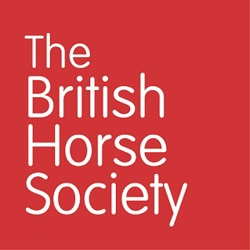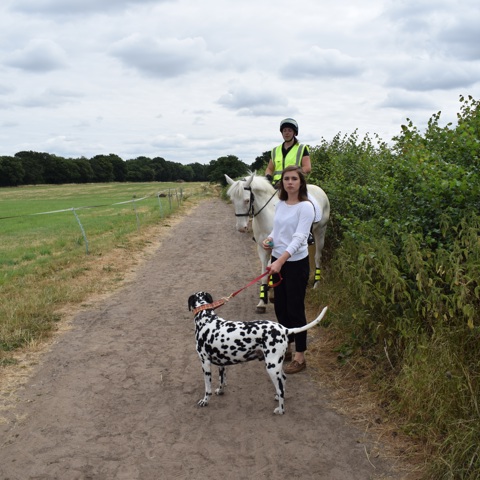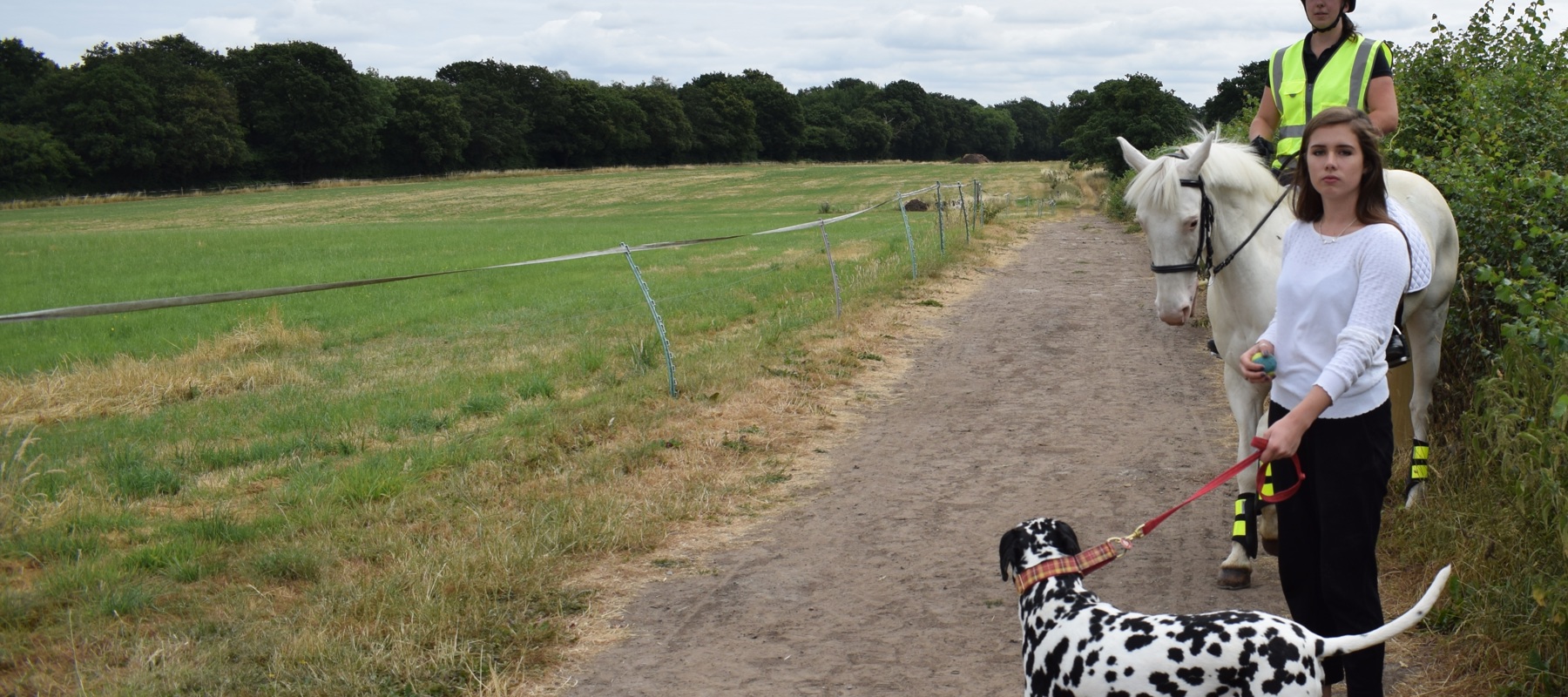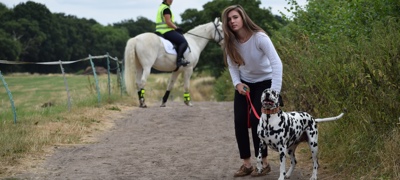Unfortunately, sometimes these instincts can take over and result in undesirable behaviours, such as chasing or fleeing. This can be distressing for both animals and handlers, and in the worst-case scenario can be fatal.
In recent years, at The British Horse Society, we have seen an increase in the number of dog-related incidents involving horses - not just in fields but also those being ridden or driven. As both horses and dogs offer us companionship, and enjoy exercising with us in outdoor spaces, they need to share common areas safely.
Top tips for horse owners
- Always slow to a walk to pass dogs
- Communicate with the owner if they have not seen you, or call out for an owner if a dog is loose or unaccompanied
- If necessary, stop to allow the owner to put their dog on a lead
- Give dogs a wide berth so they do not feel threatened
- Always wear hi vis to enable other route users to see you
- Be nice and say hi
If the worse happens and your horse is attacked by a dog
chevron-down
chevron-up
Try to:
- Stay calm
- Distance yourself from the dog by riding away
- Protect young or vulnerable riders if possible and safe to do so
- Keep the horse's head away from the dog
- Allow your horse to defend itself
- Make a note of any identifying details of either the dog or their owner
After the event:
chevron-down
chevron-up
- Make sure that you and your horse are safe
- Try to get the dog owner's contact details in case the incident needs following up.
- Always report any incident to the Police and ask them to refer it to the Dog Legislation Officer, who will be an expert in these matters
- Report the incident to the BHS
Top tips for dog owners
- Always keep your dog on a lead or in sight
- Be confident your dog will return on command
- Make sure your dog does not stray from the path or area where you have right of access
- Introduce your dog to horses and train them to maintain calm around horses
- Don’t allow your dog to jump up at the horse
- If you’re not sure how your dog will react around horses, keep them on a lead and ask them to sit and stay while the horse passes
- Be nice and say hi
Close control
chevron-down
chevron-up
- It's important to have 'close control' of your dog when walking in areas where you might meet horses to help everyone stay safe, and avoid potential prosecution for having your dog 'dangerously out of control' (Dangerous Dogs Act 1991 Section 3).
- Having 'close control' means that you can instantly control your dog, no matter the circumstances.
- Of course, this may look different, depending on the situation and how reliable your dog's recall is. For example, if your dog doesn't always recall quickly or you are unsure how they'll react to a horse, you may need to keep them on a lead.
- Consequences of having a dog deemed 'dangerously out of control' include:
- Destruction of the dog
- Disqualification from owning dogs
- Compulsory muzzling and keeping the dog on a lead in public
- Two years' imprisonment
- £5,000 fine
 play-circle
play-circle
Watch




